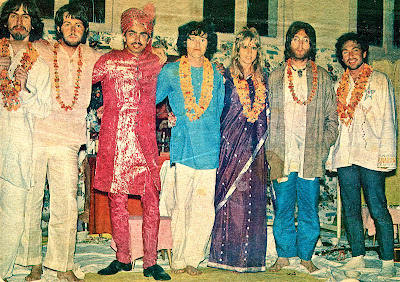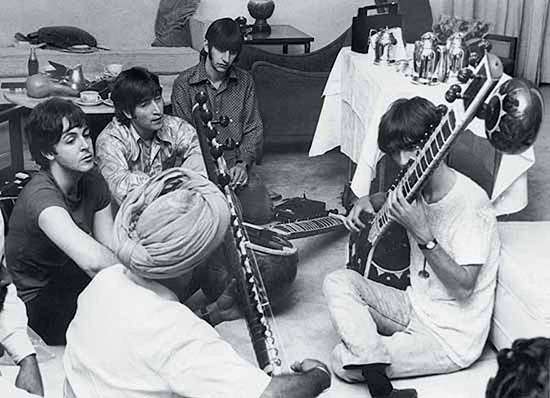Showing posts with label Postcolonialism. Show all posts
Showing posts with label Postcolonialism. Show all posts
Thursday, April 4, 2019
Orientalism, It Is Real
In his article "The Postcolonial Mind – God of Small Things," Amardeep Singh uses ideas proposed by Edward Said about the pattern and roots of Orientalism to make the argument that although actual colonialism is a thing of the past, colonialism is still with us as a society. He suggests that this is true because both the ruler and the ruled to some extent share an experience that is not easy to separate. Although Singh is initially talking about Orientalism, what he describes is similar in many ways to the issues that surround the topic of race in the United States. Like Orientalism, the practice of slavery in the United States used a system of power and dominance to create an “us” versus “them” system between slave owners and slaves. When talking about Orientalism, Singh concludes that there is no simple way to achieve true decolonization and this also seems to apply to slavery. Like colonization, although slavery is a thing of the past in the United States, the history of slavery, including the imagery and vocabulary surrounding it, still continues to exist in the post-slavery world. Racial issues are more recognizable today and have even been publicly addressed there is still and embedded undertone that can be felt in our everyday world.
Posted by
Anonymous
at
8:00 PM
Labels:
Edward Said,
God of Small Things,
Orientalism,
Postcolonialism
Wednesday, August 1, 2018
Welcome!
Welcome to the weblog for our AP Literature class -- the place where we will be continuing conversations from class and starting new ones. We'll be discussing and debating literary conundrums, the meaning of life, and so much more. We might even see a little poetry.
So, what's a blog? And how will we be using it class? For information on blogging and how to join and post to our blog, see "All About Blogging."
We're looking forward to a great year.
Make sure you check your e-mail for your invitation to join the blog. Also – and this is very important – the first step you should take after you accept the invitation is to edit your user profile so that you control how your identity and your communication preferences. Click on the pull-down menu next to your name in the upper right corner of the browser and click on “Blogger Profile.” Then click on “Edit Profile.”
You can fill out as much of it as you want, but the only requirement is -- under “Identity” -- make sure your “Display name” is your first name and last initial only -- so we provide some anonymity while still allowing your classmates and teacher to be able to identity who you are. For example, change “Bernie Heidkamp” to “Bernie H.”
So, what's a blog? And how will we be using it class? For information on blogging and how to join and post to our blog, see "All About Blogging."
We're looking forward to a great year.
Make sure you check your e-mail for your invitation to join the blog. Also – and this is very important – the first step you should take after you accept the invitation is to edit your user profile so that you control how your identity and your communication preferences. Click on the pull-down menu next to your name in the upper right corner of the browser and click on “Blogger Profile.” Then click on “Edit Profile.”
You can fill out as much of it as you want, but the only requirement is -- under “Identity” -- make sure your “Display name” is your first name and last initial only -- so we provide some anonymity while still allowing your classmates and teacher to be able to identity who you are. For example, change “Bernie Heidkamp” to “Bernie H.”
Friday, March 23, 2018
It's Still Ours: The Beatles and Orientalism in a Post-Colonial World
The 1960's saw The Beatles own the world, and as they clearly believed, the cultures throughout it. The Beatles relationship with India and its culture alone demonstrates how their attitudes towards India, even in a post-colonial world, were stereotypical, white washed, and largely unfair. There is, however, an interesting nuance to the bands use of Indian culture. Their perception and portrayal of Indian culture was not in the pursuit of justifying and continuing British economic and military domination of South Asian countries, but was more a repudiation of the world in which they had grown up.




While this seems to soften the offense, they still managed to display India in a wholly inaccurate way. The Beatles' reputation for drugs helped to conflate the culture with that of psychedelics, music, and sex. Their portrayal of India is one of languid and rampant drug use and spiritual awakenings. This bleeds not only into their personal lives (George Harrison especially began to embrace Hinduism and Indian cultural practices) but their music as well, where they featured psychedelic musical themes and extensive use of cultural instruments such as the sitar.

All of this culminates into an inaccurate depiction of an Indian way of life. It romanticizes aspects of a cultures created and dominated by white, largely English musicians (The Kinks and the Yardbirds would also feature similar themes), with a foreign tagged placed on it; a price change to make it more appealing and exotic to the masses.

Wednesday, March 9, 2016
Said's Orientalism
Said's Orientalism can be defined by the idea of the West promoting a sense of difference between our society and that of the Middle to Far East. By thinking this way, the West had and has the means to dominate the region in a political, social, and economic sense. The Middle East and other regions that create the area that Said talks about are seen as being at a sort of lower and less developed level of civilization than the European countries and the United States. To him, the West sees the region as simply being incapable on all ends in comparison to Western society. The idea of Orientalism came about when European countries began to take control of the "Oriental" region with both political and economic goals. Since then, the West has continued to use and, in a sense, abuse this region with constant exploitation. Now, with so-called postcolonialism, the West is trying to detach itself from the idea of imperialism. People have recognized this idea of Orientalism and have criticized it on its ill-treatment of the region that seemingly makes up a large portion of the world.
I still think that we have an Orientalist mindset today, and to me, this is definitely not good. However, I don't think that it stems from the region itself and what it "lacks" in comparison to the West. I think that the main reason for today's Orientalism (which, don't get me wrong, can still be tied back to the original sense) is a sense of Western hunger for supremacy rather than looking more at the Middle East and Far East's "flaws". Donald Trump comes to mind. Why do we need to make America "great" again? Why can't we just be America. Also, there is a lot of emphasis on idea that America is the perfect country. Our rampant patriotism is becoming a flaw that singles us out and only points at our need for supremacy over others.
I still think that we have an Orientalist mindset today, and to me, this is definitely not good. However, I don't think that it stems from the region itself and what it "lacks" in comparison to the West. I think that the main reason for today's Orientalism (which, don't get me wrong, can still be tied back to the original sense) is a sense of Western hunger for supremacy rather than looking more at the Middle East and Far East's "flaws". Donald Trump comes to mind. Why do we need to make America "great" again? Why can't we just be America. Also, there is a lot of emphasis on idea that America is the perfect country. Our rampant patriotism is becoming a flaw that singles us out and only points at our need for supremacy over others.
Thursday, March 19, 2015
A Mix of Two
In Orientalism Edward Said describes Orientalism as the patronizing view the West, specifically America, takes on the East. After analyzing the argument, I realized that myself and many of my peers are guilty of the same attitude. All too often, we view the United States as the center of the world and the place to be. There is often a blatant disregard for other's cultures and when different cultures are brought in, they are "Americanized". Miles provided a great example in class about Disney world and how Eastern culture is brought into Epcot. Throughout this experience I cannot help but think of my aunt.
My aunt is Japanese and married into my family. She taught me how to make Sushi and other aspects of Japanese culture. However what sticks with me the most are the stories she tells about her mother. Her mother was forced into a Japanese internment camp located here in the United States. My aunt tells me about how the camp was located at a racetrack and how the conditions were absolutely horrible. She ended up getting married to an American soldier who rescued her from the camp. This had a unique impact on my aunt's childhood. It was constantly split between Japanese culture and American culture. She was able to hear about political conflict from many different perspectives as well. I thought that this story really connected to Said's argument and the discussions we had in class. Everyone has a different perspective and a different story to tell and that absolutely fascinates me.
My aunt is Japanese and married into my family. She taught me how to make Sushi and other aspects of Japanese culture. However what sticks with me the most are the stories she tells about her mother. Her mother was forced into a Japanese internment camp located here in the United States. My aunt tells me about how the camp was located at a racetrack and how the conditions were absolutely horrible. She ended up getting married to an American soldier who rescued her from the camp. This had a unique impact on my aunt's childhood. It was constantly split between Japanese culture and American culture. She was able to hear about political conflict from many different perspectives as well. I thought that this story really connected to Said's argument and the discussions we had in class. Everyone has a different perspective and a different story to tell and that absolutely fascinates me.
Subscribe to:
Posts (Atom)
